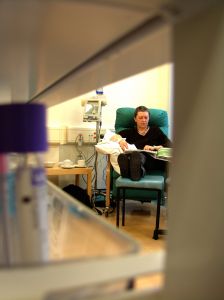Welsh v. Colvin, an appeal from the United States Court of Appeals for the Eighth Circuit, involves a claimant who applied for Social Security Disability Insurance (SSDI) and Supplemental Security Income (SSI) benefits from the United States Social Security Administration (SSA). The SSA denied his applications for benefits.
 After the SSA denied his initial application, he appealed that decision. As an experienced SSDI attorney in Massachusetts can explain, the SSA routinely denies far more than half of all new applications almost as a matter of course. Once receiving an initial denial, claimants can appeal the decision to the SSA in writing.
After the SSA denied his initial application, he appealed that decision. As an experienced SSDI attorney in Massachusetts can explain, the SSA routinely denies far more than half of all new applications almost as a matter of course. Once receiving an initial denial, claimants can appeal the decision to the SSA in writing.
Once the SSA agent gets a written appeal, the denial is reviewed on a peer review system. This means that a coworker of the employee who made the initial denial will review the application and decide if a mistake was made. It is almost always the case that the coworker handling the first appeal will defer to his or her coworker who denied the application and affirm the earlier determination.
At this point, claimants may timely file an appeal to the denial, requesting a hearing before an Administrative Law Judge (ALJ). The ALJ will hold an evidentiary hearing, where he or she hears testimony from claimant, a vocational expert (VE), and possibly one or more medical doctors or psychologists. These experts are hired by the SSA and generally will find that a claimant is able to do some kind or work, even if it is not similar to the type of work previously done by claimant.
The ALJ found that while claimant could not return to his previous type of employment, he was able to do a sedentary job, such as security monitor or call out operator. This was the basis for the denial of his claims for benefits.
After appealing to the U.S. District and having the denial affirmed, claimant appealed again. On appeal, the court looked at the ALJ’s implementation of the rigid set of guidelines to determine if claimant could perform any work in the national economy.
It was determined that security monitor and call operator did not require the use of both hands (one of claimant’s hands did not function properly) and required lifting less than 10 pounds. While there was no question that claimant could not return to the type of work he was doing prior to becoming disabled, the court found that the ALJ had properly made a finding and affirmed denial of benefits.
One of the issues that your SSDI attorney can discuss is that it is often difficult to receive a disability rating with only one injury or illness, regardless of the severity. While every case is different, and you should speak to a lawyer about the facts of your particular situation, it is often necessary to explore other factors that may increase the chance of obtaining benefits. Many people who are disabled may be suffering from depression, PTSD, or other mental health issues that often result from an accident or being unable to work. You should not be hesitant to discuss any medical issues you may be having, as they may be relevant to your case.
If you are seeking Social Security Disability Insurance in Boston, call for a free and confidential appointment at (617) 777-7777.
Additional Resources:
Welsh v. Colvin, September 10, 2014, U.S. Court of Appeals for the Eighth Circuit
More Blog Entries:
Hanson v. Colvin: A Critical Look by a Court of Appeals on a Denial of Benefits, August 14, 2014, Boston Disability Lawyers Blog
 Massachusetts Social Security Disability Lawyers Blog
Massachusetts Social Security Disability Lawyers Blog

